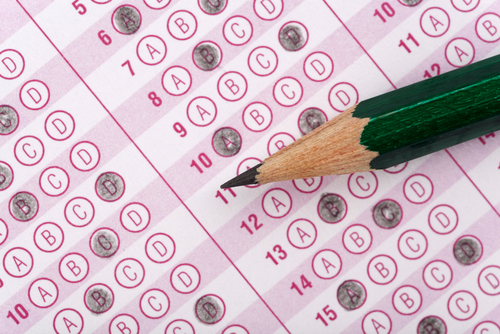Tech company accused of bar-exam grading glitch has no liability in test-takers’ suit, 11th Circuit says

Image from Shutterstock.com.
Law grads who were wrongly told that they failed the Georgia bar exam can’t recover damages against the software company they accused of producing the incorrect scores, a federal appeals court has ruled.
The 11th U.S. Circuit Court of Appeals at Atlanta ruled Wednesday in an unpublished opinion covered by Law360.
The per curiam opinion upheld dismissal of claims in a would-be class action for ordinary negligence, strict liability, negligent design and defamation.
The alleged glitch occurred during a rescoring process on the July 2015 and February 2016 bar exams, the opinion explained.
The Georgia bar exam has three components: the Multistate Bar Exam consisting of 200 multiple choice questions, two essay questions, and four Georgia-specific essay questions. A passing score is 270 out of a possible 400 points.
Under Georgia’s scoring system, anyone who fails to get a 115 on the multistate exam automatically fails and the essays are not graded. Essays are scored for those with multistate scores above the cutoff. Those who are within five points of the passing grade of 270 get their essays regraded, and the higher essay score is used.
The plaintiffs alleged in their suit that, because of a software glitch, the regraded essays were not properly taken into consideration. They blamed the company, ILG Technologies, for the mishap; the company disputed the allegations.
The name plaintiffs in the suit are Lloyd Dan Murray Jr. and Jennifer McGhan.
The appeals court said the plaintiffs’ claims for defamation failed because they were unable to show that ILG Technologies published the bar exam results. ILG Technologies had transmitted the results to Georgia’s Office of Bar Admissions, which published the faulty information.
The plaintiffs’ other claims failed because of Georgia’s economic loss rule, which generally bars recovery by people suing over a contractual duty when they are not parties to the contract, the appeals court said.
The appeals court said the plaintiffs couldn’t recover under an exception that allows recovery when there is a cause of action independent of the contract.



